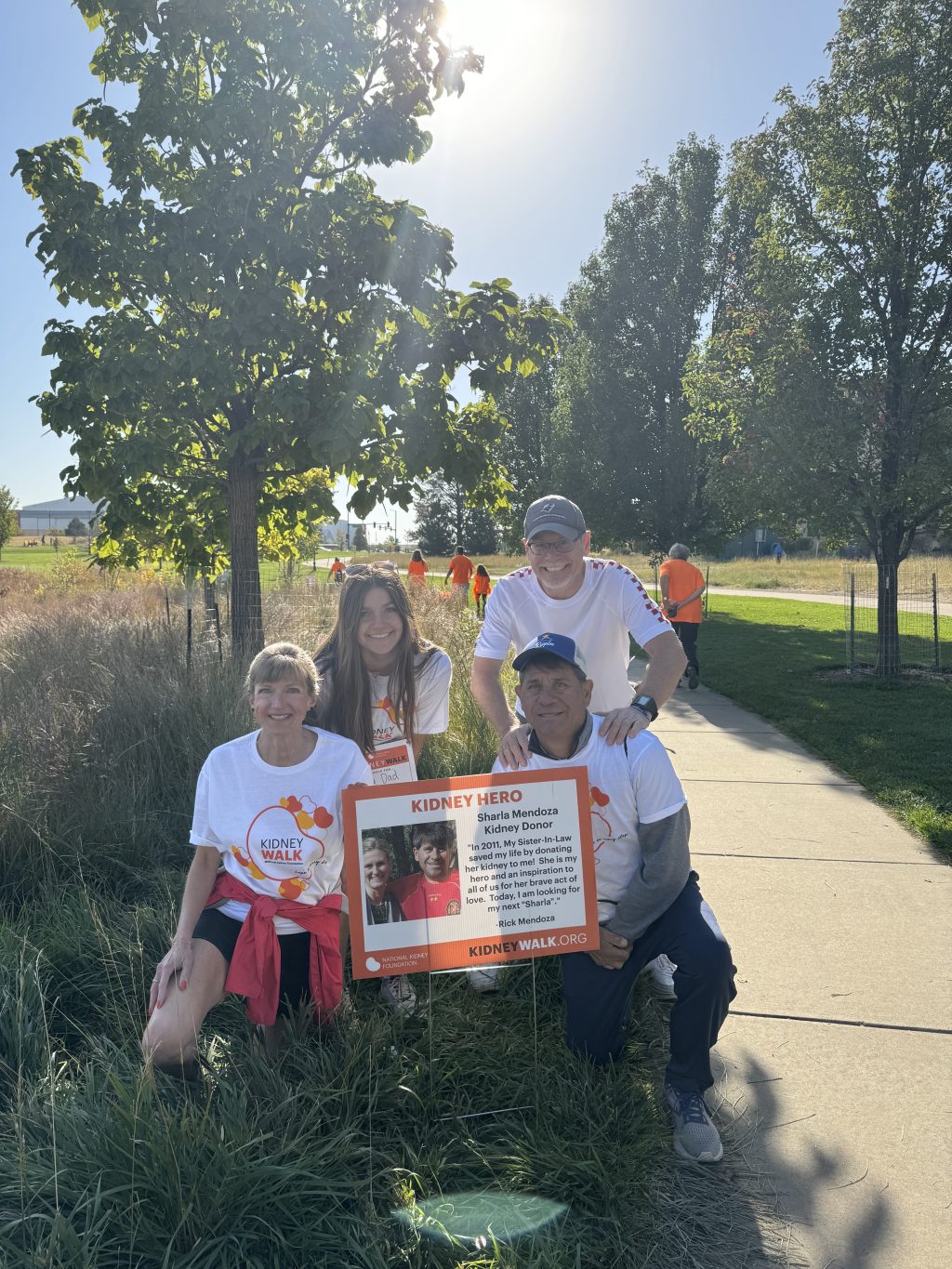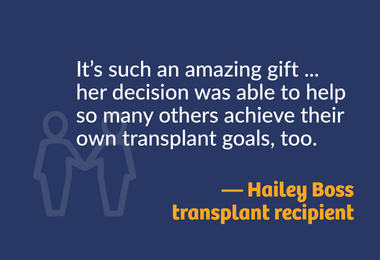A Second Chance at a Second Chance: Rick Searches for a Kidney Transplant

For more than a decade, Rick Mendoza had been fully enjoying his kidney transplant. From hikes to mowing the lawn to attending his daughter's school and sporting events, his transplant let him experience all of the simple pleasures in life. That was until his kidneys started to fail again in 2022.
“I thought to myself, ‘This cannot be happening. Not again. Not already,’” said Rick.
The Gift of Life: Kidney Donation
Back in 2010, Rick’s kidneys started to fail for the first time, sending him into a state of depression and confusion. Thankfully, he didn’t let it keep him down for long. Rick knew if he wanted to get better, he would need to search for a new kidney. His search didn’t take him very far, leading him to his sister-in-law, Sharla Mendoza.
Despite her fear of needles and other health anxieties, Sharla decided that she needed to help her brother-in-law. In 2011, she donated her kidney to Rick, bringing the family even closer together.
“Don't burn the bridges with your in-laws because you never know,” Rick joked. “My sister’s gift allowed me to [experience] those 12 years fully alive.”
With over a decade of life lived with his new kidney, Rick didn’t expect to slow down at any point — let alone in his 50s.
Unfortunately, Rick’s started to fail once again in the summer of 2022.
The Impact of Kidney Failure
More than 23%1 of kidney transplant recipients experience graft failure by the five-year mark, and that number rises to about 35%2 by 10 years.
“We had just finished a family vacation and there were some signs. Lack of energy, weakness, headaches. I knew something was wrong,” said Rick.
Individuals on the waitlist are more susceptible to mental health conditions like anxiety, depression, and substance use disorders 3. Living with a chronic illness like chronic kidney disease can also lead to self-isolation, worsening the symptoms of mental health conditions.
“Rick is so outgoing. He’s such a people person. He always wants to be doing something outdoors or with others,” said Michelle Mendoza, Rick’s wife of over 30 years. “It was hard to see him lose some of that light when his kidneys started to fail again.”
Despite his uphill battle, Rick has no intention of giving up on finding a new kidney or giving his connection to his vast community.
“Rick is motivated to try again. Some people aren’t as motivated to start looking for a second transplant, but he is,” said Tamara Polk, a registered nurse at DaVita Littleton. “I’m so happy he’s pushing forward. Even if it’s hard.”
Despite being back on dialysis appointments several times a week, Rick takes full advantage of his treatment time, connecting with patients and care team members to pass the time and stay social.
“I like to stay engaged! It makes those four hours go by faster,” said Rick. “Chatting with people helps me feel human.”
He does more than just engage with his fellow patients during treatment, too. From volunteering with the National Kidney Foundation to creating his own transplant search website, Rick is staying active in the chronic kidney disease (CKD) community.
"[Working with NKF] has fully improved his mood. It’s brought life back into him,” said Haley Mendoza, Rick’s daughter and NKF Kidney Walk fundraiser. “Finding passion through something he’s been struggling with. Finding and helping people who are struggling has really helped him.”
Not Ready to Give Up
Today, Rick spends his time looking toward the future while cherishing his connections in the present. While he’s planning out his future of travel and outdoor activities with his family, he remains focused on his mission of finding a new kidney and encouraging others in his situation to do the same.
“It’s one day at a time. We do what we can, and we stay positive and connected with one another. We are looking toward the future,” said Michelle.
With the support of his loved ones and care team, Rick remains hopeful about his chances of finding a second kidney.
“It is possible to find a second transplant,” said Tamara. “Other people have found success. Just keep working towards it. Keep doing everything you’re supposed to keep doing. You never know when you will get the call for a new kidney."
1 Long-term kidney transplant graft survival—Making progress when most needed Poggio, Emilio D. et al. American Journal of Transplantation, Volume 21, Issue 8, 2824 – 2832 https://www.amjtransplant.org/article/S1600-6135(22)08680-4/fulltext
2 Health Resources and Services Administration (2018, January 1). OPTN/SRTR 2017 Annual Data Report: Kidney. The Scientific Registry of Transplant Recipients (SRTR). https://srtr.transplant.hrsa.gov/annual_reports/2017/Kidney.aspx#KI_76_tx_adult_GF_DD_5yr_diag_1_b64
3 Grzyb, C., Du, D., Mahesh, B., & Nair, N. (2024). Mental Health and Substance Use Disorders in Transplant Waitlist, VAD, and Heart Transplant Patients: A TriNetX Database Analysis. Journal of clinical medicine, 13(11), 3151. https://doi.org/10.3390/jcm13113151







